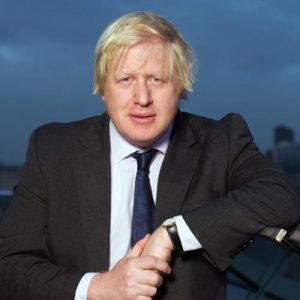Boris Johnson – 2018 Statement on Syria
Below is the text of the speech made by Boris Johnson, the Foreign Secretary, in the House of Commons on 26 February 2018.
Mr Speaker, I’m grateful to the Hon Member for Barrow and Furness for raising this vital issue. In 7 years of bloodshed, the war in Syria has claimed 400,000 lives and driven 11 million people from their homes, causing a humanitarian tragedy on a scale unknown anywhere else in the world.
The House should never forget that the Asad regime – aided and abetted by Russia and Iran – has inflicted the overwhelming burden of that suffering. Asad’s forces are now bombarding the enclave of Eastern Ghouta, where 393,000 people are living under siege, enduring what has become a signature tactic of the regime, whereby civilians are starved and pounded into submission.
With bitter irony, Russia and Iran declared Eastern Ghouta to be a ‘de-escalation area’ in May last year and promised to ensure the delivery of humanitarian aid.
But the truth is that Asad’s regime has allowed only one United Nations convoy to enter Eastern Ghouta so far this year – and that carried supplies only for a fraction of the area’s people. Hundreds of civilians have been killed in Eastern Ghouta in the last week alone and the House will have noted the disturbing reports of the use of chlorine gas.
I call for these reports to be fully investigated and for anyone held responsible for using chemical weapons in Syria to be held accountable.
Over the weekend I discussed the situation with my Turkish counterpart Mevlut Cavusoglu, and Sa’ad Hariri, the Prime Minister of Lebanon. Earlier today, I spoke to Sigmar Gabriel, the German foreign minister, and I shall be speaking to other European counterparts and the UN Secretary General in the coming days.
Britain has joined with our allies to mobilise the Security Council to demand a ceasefire across the whole of Syria and the immediate delivery of emergency aid to all in need.
Last Saturday, after days of prevarication from Russia, the Security Council unanimously adopted Resolution 2401, demanding that “all parties cease hostilities without delay” and allow the “safe, unimpeded and sustained delivery of humanitarian aid”, along with “medical evacuations of the critically sick and wounded”.
The main armed groups in Eastern Ghouta have accepted the ceasefire, but as of today, the warplanes of the Asad regime are still reported to be striking targets in the enclave and the UN has been unable to deliver any aid. I will remind the House that hundreds of thousands of civilians are going hungry in Eastern Ghouta only a few miles from UN warehouses in Damascus that are laden with food. The Asad regime must allow the UN to deliver those supplies, in compliance with Resolution 2401, and we look forward to Russia and Iran to making sure this happens, in accordance with their own promises.
I have invited the Russian Ambassador to come to the Foreign Office and give an account of his country’s plans to implement Resolution 2401. I have instructed the UK Mission at the UN to convene another meeting of the Security Council to discuss the Asad regime’s refusal to respect the will of the UN and implement the ceasefire without delay. Only a political settlement in Syria can ensure that the carnage is brought to an end and I believe that such a settlement is possible if the will exists.
The UN Special Envoy, Staffan de Mistura, is ready to take forward the talks in Geneva and the opposition are ready to negotiate pragmatically and without preconditions. The international community has united behind the path to a solution laid out in UN Resolution 2254 and Russia has stated its wish to achieve a political solution under the auspices of the UN.
Today, only the Asad regime stands in the way of progress. I urge Russia to use all its influence to bring the Asad regime to the negotiating table and take the steps towards peace that Syria’s people so desperately need.


